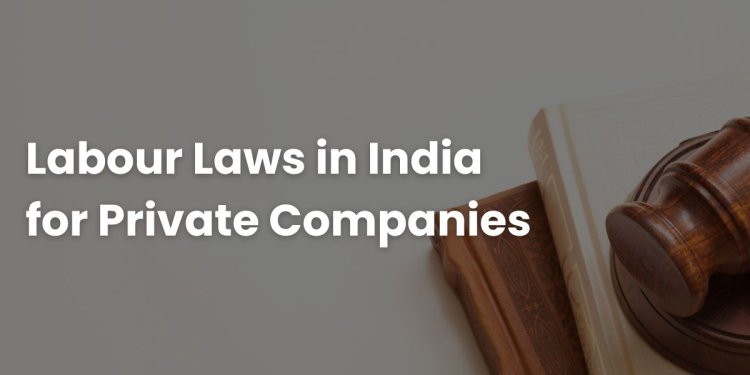Running a private company in India is not just about hiring people and paying salaries. Every employer has to follow labour laws, and every employee should know their rights. These laws decide how much you get paid, when you can take leave, and what benefits you’re entitled to. They also tell employers what they must do to stay legal.
How Labour Laws Work in India
India has always had a complicated set of labour rules. Some are made by the central government, some by the states. This often confuses both employers and employees.
To simplify things, the government passed four new labour codes in 2020. These were meant to replace 29 older laws. They cover wages, social security, workplace safety, and industrial relations. As of 2025, not all of them are fully rolled out, but private companies are expected to gear up for them.
Major Labour Laws Every Private Company Must Follow
Code on Wages, 2019
Covers all workers, whether in factories, offices, or shops. It makes sure employees get at least the minimum wage, salaries are paid on time, and men and women are paid equally. Overtime pay must be double the usual wage.
Industrial Relations Code, 2020
This one deals with strikes, layoffs, and disputes. Companies with over 300 workers need government approval before closing down.
Occupational Safety, Health and Working Conditions Code, 2020
Focuses on safety and working conditions. It requires health checkups, regulates work hours, and makes sure companies provide basic facilities like clean drinking water and restrooms.
Code on Social Security, 2020
Extends benefits like PF, ESI, gratuity, and maternity leave to more workers. For the first time, gig workers and platform workers have also been included.
Shops and Establishments Act (state-specific)
Every state has its own version. It applies to almost all private companies, including IT and startups. It sets rules for working hours, holidays, and leave.
Payment of Bonus Act, 1965
Companies with at least 20 employees must pay a bonus if they earn profits. Employees earning up to Rs 21,000 per month qualify.
Payment of Gratuity Act, 1972
Gratuity is a thank-you payment for long service. If you’ve worked five years or more, and your company has 10 or more staff, you get it.
Employees’ Provident Fund Act, 1952
Both employer and employee contribute 12 percent of salary each month. This builds a retirement fund.
Employees’ State Insurance Act, 1948
Provides health cover for employees earning under Rs 21,000 a month. Employers contribute 3.25 percent, employees 0.75 percent.
What Private Companies Must Do to Stay Compliant
- Register under the Shops and Establishments Act.
- Keep proper records of wages, attendance, and leave.
- Deduct and deposit PF and ESI contributions.
- Give employees paid leave and follow safety rules.
- Display key labour law notices in the workplace.
What Happens if Rules Are Broken
Ignoring labour laws is risky.
- Late PF payments mean interest and penalties.
- Skipping minimum wages can cost up to Rs 50,000 in fines.
- Repeat violations may even land directors in jail.
- Non-compliance can also trigger strikes, lawsuits, and loss of trust.
Why Following Labour Laws Helps Everyone
For employers, it avoids fines and builds trust with workers. For employees, it ensures fair treatment and financial security. For companies, compliance means fewer disputes, better retention, and smoother growth.
Real-World Challenges for Private Companies
- Different states have different rules.
- Compliance can be expensive for small firms.
- Many startups ignore laws until they face legal trouble.
FAQs
Q1. Are IT companies covered under labour laws?
Yes. They fall under state Shops and Establishments Acts and central laws.
Q2. What is the minimum wage for private companies in India?
It depends on the state and skill level. For example, in Delhi (2025), unskilled workers earn around Rs 17,500 per month.
Q3. Do startups need to follow labour laws?
Yes, once they cross the employee thresholds. PF, ESI, and Shops Act usually apply even to small startups.
Q4. What if a company doesn’t deposit PF?
It faces penalties, interest, and prosecution. Directors can also be held personally liable.
Q5. Are contract workers covered?
Yes. They are entitled to PF, ESI, and gratuity if they meet eligibility rules.
Conclusion
Labour laws in India are not just rules on paper. They shape the relationship between employers and employees in private companies. Whether you run a five-person startup or a thousand-person corporation, following them is not optional. It’s the foundation for fair, safe, and secure workplaces.






